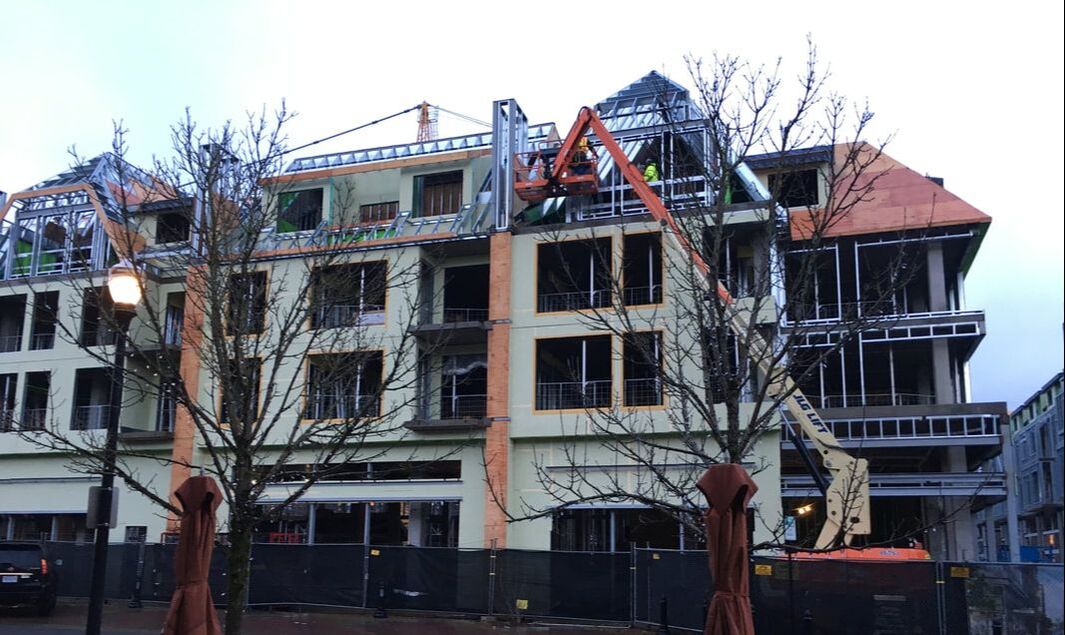A Real Estate Developer, or Developer for short, converts raw dirt into single family homes, apartment buildings, retail strip malls, office buildings, warehouses, etc. The process can take from months to years to go from concept to finished product. For this the Developer has multiple insurance needs.
First things first, check with the state or municipality for any license requirements. Each jurisdiction has its own way of protecting the public. Requirements can include; successful passing of a knowledge test, insurance and a license bond. To be safe, check with your local builders board.
License Bond: This protects the public from any money lost when you fail to do as you promised. The bond is secured by a personal indemnity agreement, which is a promise from you to pay back the bond company for any money the bonding company pays out on your behalf.
Premises Liability: The bare land has the exposure of trip and fall for if someone gets hurt on the property. A Premises General Liability policy can satisfy the exposure while the developer is working on the plans, permits and financing.
From the first shovel of dirt to the final inspection for occupancy permit, there is a lot of activity going on. Contractors, material delivery, inspections, curious onlookers, etc are constantly coming and going. If anyone gets hurt on the premises, the Premises Liability coverage will provide the needed coverage.
Certificates of Liability: As a developer, your role is likely not to be doing the construction, but rather to dream, find the money and coordinate all the people needed to make the finished product. Since you are not doing the actual construction, you will need to hire subcontractors.
For each subcontractor you hire, you need a contract that spells out their responsibilities; work to perform, price, timeline and insurance requirements, including a Certificate of Liability naming you as an Additional Insured.
The purpose of the Certificate is to provide a path for coverage when the subcontractor’s work causes damage to your customers or the public. Because you are listed as an additional insured on the subcontractors policy, your first line of coverage will be provided by the subcontractors insurance policy.
When done properly your policy will never be at risk. When your insurance policy does not pay claims, your claims history is attractive, and insurance companies want to offer you coverage. This translates to low premiums for you and your next project.
Products and Completed Operations: Once the contractors leave the work site, their work is considered a finished product, or completed operation. When the property is finally sold or occupied, the Completed Operations exposure lingers for up to ten years. In the years that follow a completed project, a lot changes.
If the Developer closes the entity, this does not eliminate the lingering liability. For this, it is best to purchase a completed operations policy that provides enough time for the work to be completed plus a tail for any claims that will come from the buyers of the property in the window of repose.
Builders Risk: While the building is under construction, your insurance company will not offer a policy for a completed building. But your lender will require that you maintain insurance on the building. For this there is Builders Risk Insurance. A Builders Risk policy is a property policy that provides coverage from the first pour of concrete up to the sale or occupancy of the completed building.
To discuss in depth and find out how to best protect yourself, please click the link to schedule a call: https://calendly.com/jdarringross/30min
First things first, check with the state or municipality for any license requirements. Each jurisdiction has its own way of protecting the public. Requirements can include; successful passing of a knowledge test, insurance and a license bond. To be safe, check with your local builders board.
License Bond: This protects the public from any money lost when you fail to do as you promised. The bond is secured by a personal indemnity agreement, which is a promise from you to pay back the bond company for any money the bonding company pays out on your behalf.
Premises Liability: The bare land has the exposure of trip and fall for if someone gets hurt on the property. A Premises General Liability policy can satisfy the exposure while the developer is working on the plans, permits and financing.
From the first shovel of dirt to the final inspection for occupancy permit, there is a lot of activity going on. Contractors, material delivery, inspections, curious onlookers, etc are constantly coming and going. If anyone gets hurt on the premises, the Premises Liability coverage will provide the needed coverage.
Certificates of Liability: As a developer, your role is likely not to be doing the construction, but rather to dream, find the money and coordinate all the people needed to make the finished product. Since you are not doing the actual construction, you will need to hire subcontractors.
For each subcontractor you hire, you need a contract that spells out their responsibilities; work to perform, price, timeline and insurance requirements, including a Certificate of Liability naming you as an Additional Insured.
The purpose of the Certificate is to provide a path for coverage when the subcontractor’s work causes damage to your customers or the public. Because you are listed as an additional insured on the subcontractors policy, your first line of coverage will be provided by the subcontractors insurance policy.
When done properly your policy will never be at risk. When your insurance policy does not pay claims, your claims history is attractive, and insurance companies want to offer you coverage. This translates to low premiums for you and your next project.
Products and Completed Operations: Once the contractors leave the work site, their work is considered a finished product, or completed operation. When the property is finally sold or occupied, the Completed Operations exposure lingers for up to ten years. In the years that follow a completed project, a lot changes.
If the Developer closes the entity, this does not eliminate the lingering liability. For this, it is best to purchase a completed operations policy that provides enough time for the work to be completed plus a tail for any claims that will come from the buyers of the property in the window of repose.
Builders Risk: While the building is under construction, your insurance company will not offer a policy for a completed building. But your lender will require that you maintain insurance on the building. For this there is Builders Risk Insurance. A Builders Risk policy is a property policy that provides coverage from the first pour of concrete up to the sale or occupancy of the completed building.
To discuss in depth and find out how to best protect yourself, please click the link to schedule a call: https://calendly.com/jdarringross/30min

